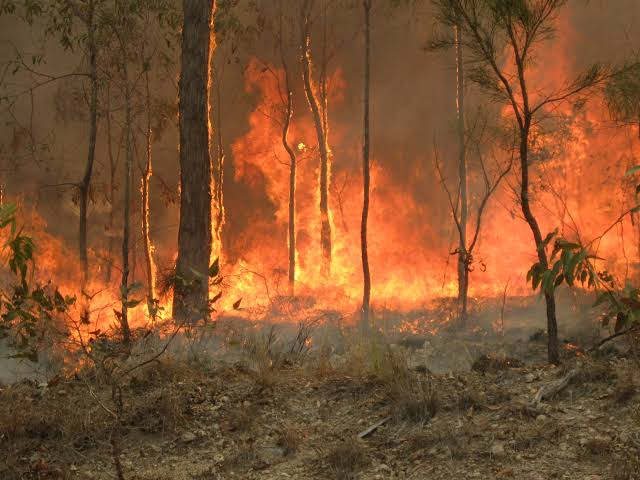The dirty, hot and dangerous work of battling bush fires might be physically exhausting for Raymond Lowe, but he is not stepping aside any time soon. Lowe is part of a four-person crew from the Rural Fire Service (RFS) in New South Wales (NSW) state who are all in their 60s and have given up their time over Christmas to tackle some of Australia's fiercest fires, in the Blue Mountains west of Sydney.
Lowe is a volunteer and says that for him, the greatest reward is the fellowship among those fighting the fires. "There's always going to be that desire to get out because it's the camaraderie that you find out here," said Lowe.

"It's hard to describe the feeling and how genuine everyone is and just how good it is to be able to help."
Lowe, a school administrator, is part of the biggest volunteer rural fire service in the world with more than 72,000 members who regularly work shifts of up to 14 hours to protect their communities and those around them.
Volunteer firefighting has long been Australia's primary defence against catastrophe but the intensity of this year's fire season sparked a political debate over whether firefighters should be compensated for their time.
The bushfires have destroyed more than 4 million hectares (9.9 million acres) across the country, dwarfing the terrain burnt by fierce fires in California during 2019. There have also been eight deaths linked to the fires, including two firefighter volunteers.
Prime Minister Scott Morrison on Sunday said volunteer firefighters in NSW would be compensated up to A$6,000 ($4,186) if they spent more than 10 days in the field this fire season. Previously, Morrison had suggested that payment of firefighters was not a priority.
For another volunteer, Ian White, retirement has meant he has more time to help his community than full-time workers. "Because I'm retired I can take the load off these younger blokes," White told Reuters. "As long as I'm healthy enough I'll keep doing it because that takes the pressure off them."









